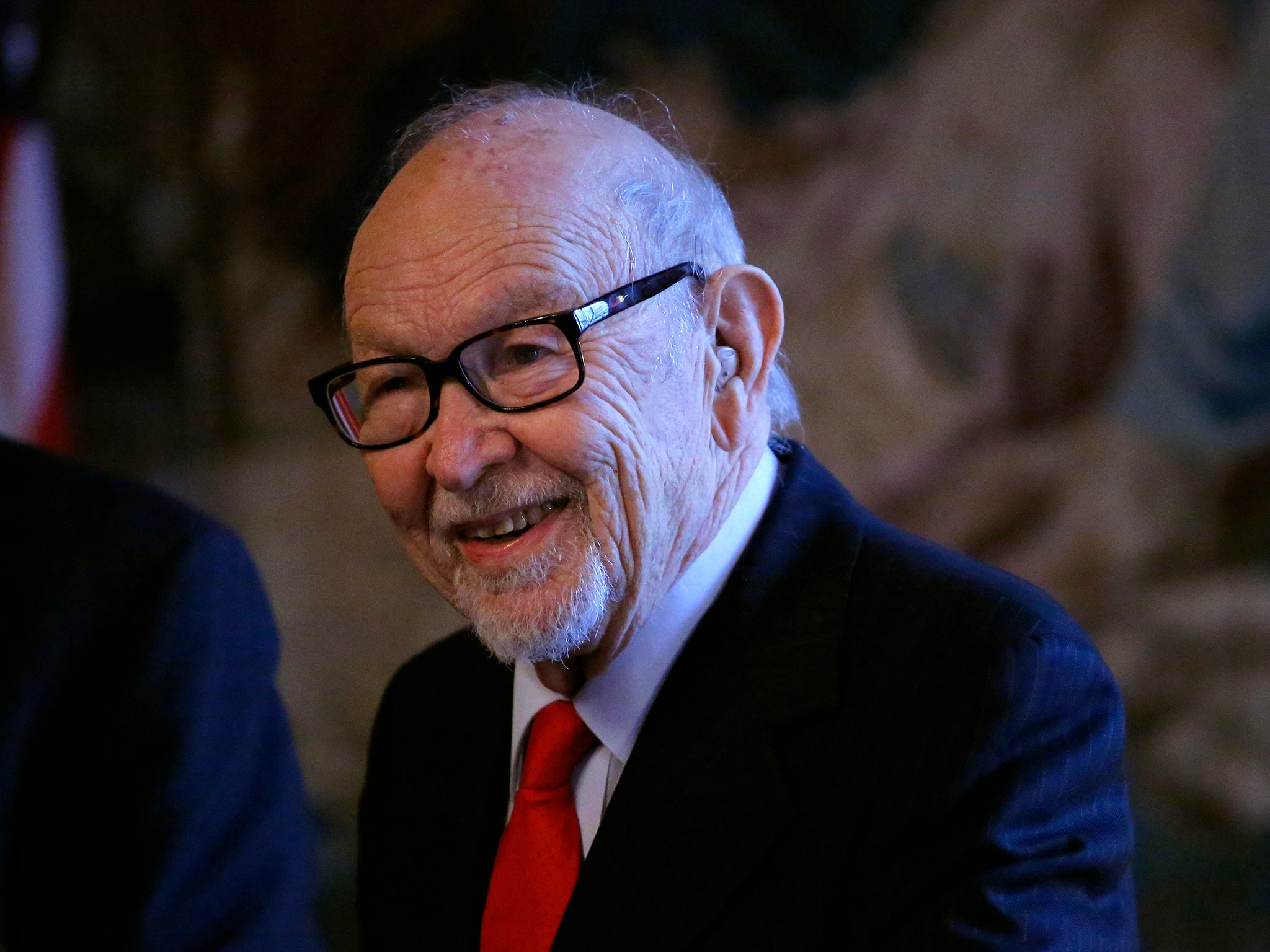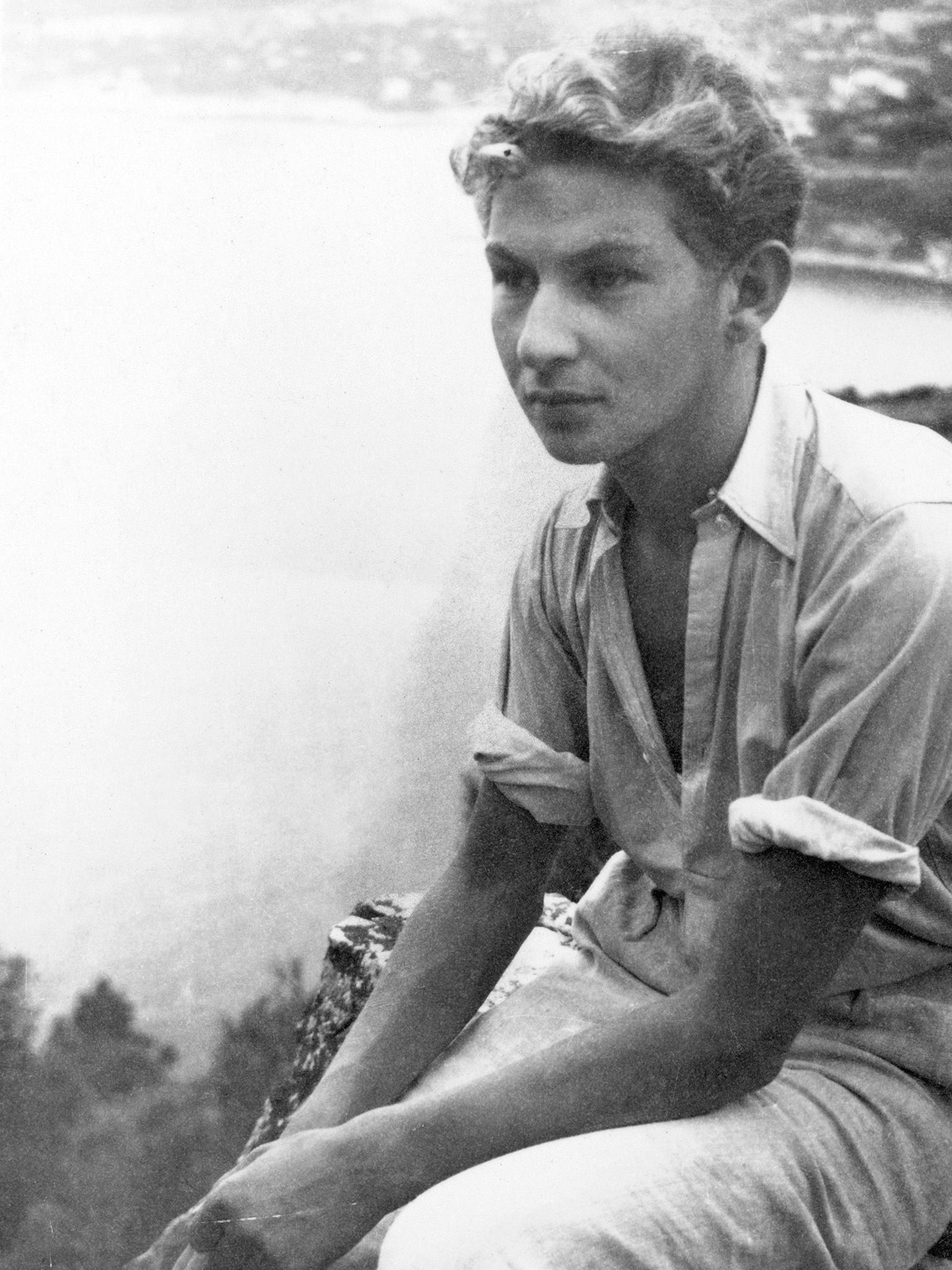Justus Rosenberg: Professor who helped many flee Nazi occupation
Circumstances led Rosenberg into the French resistance and to a group that helped thousands of individuals escape to safety

Justus Rosenberg once said: “I think of my life as what the French call concours de circonstances – a confluence of circumstances.”
Those circumstances took Rosenberg from his home in what is now the Polish city of Gdansk to Vichy France, where, at age 19, he became a courier in the storied rescue mission led by the US journalist Varian Fry. Known as the American Schindler for his efforts to save European Jews during the Holocaust, Fry was credited with helping spirit 2,000 refugees out of Nazi Europe, among them prominent intellectuals, artists and writers including Hannah Arendt, Marc Chagall, Max Ernst and Andre Breton.
Circumstances later led Rosenberg into the French resistance and might have carried him off to a Nazi labour camp had he not pulled off a daring escape.
By the end of the Second World War, he was working for the US Army as a translator – a service that helped earn him the visa that allowed him to go to the US, where for more than half a century he taught languages and literature at Bard College, New York, and the New School in Manhattan.
“I didn’t consider it particularly heroic,” Rosenberg told New York Jewish Week in 2016, reflecting on his wartime past. “It was just part of my life... There were so many people who did much more.”
Justus Rosenberg was born on 23 January, 1921, to an affluent Jewish family in Danzig, an ethnically German “free city” then under the protection of the League of Nations. His father ran an import-export business and his mother was a homemaker.
After Hitler came to power in Germany in 1933, the Nazi tide soon swept to Danzig, where Rosenberg was expelled from his high school because he was Jewish. In 1937, his parents sent him alone to Paris to continue his studies, never predicting that the Second World War would begin two years later and that their separation from their son would last 15 years.
Germany invaded Poland in 1939 and, “suddenly I could no longer correspond with my parents”, Rosenberg told The Times of Israel in 2017. “I had no money. Like everybody else, I read about the war in the papers. I thought, ‘What can I do about it?’”
Shortly before the Nazis entered Paris in June 1940, Rosenberg fled south to Toulouse, in the unoccupied territory that became Vichy France. He found shelter in a cinema where straw bags served as beds. There he met Miriam Davenport, an American artist working with Varian Fry and the Emergency Rescue Committee, the US aid organisation that had sent him to Europe. Davenport took a shine to Rosenberg, who was said to have reminded her of her brother and whom she dubbed “Gussie”.

Together they went to Marseille, the port city teeming with refugees where Fry made his headquarters. Introduced by Davenport, Rosenberg became a courier for Fry's operations, although his duties soon grew considerably. A polyglot, he spoke French as well as German and Polish, among other languages. Although approaching 20, he appeared almost childlike and thus would attract little suspicion.
“The boy’s face picked up the light from everywhere, even in my dim little room,” Mary Jayne Gold, a key financial backer of Fry’s effort, wrote in a memoir. “His cheeks were pink and high and his hair was a ruddy blonde ... In fact, he looked like a fox, a nice little fox ... The boy was young and curious.”
Among other jobs, Rosenberg ferried supplies for the production of false identity cards. “The first time I was on this mission, realising that I carried a bunch of fakes with me, I kept looking over my shoulder to make sure I wasn't being followed,” he wrote in his 2020 memoir The Art of Resistance: My Four Years in the French Underground, excerpts of which appeared on the website Literary Hub.
“Just to be on the safe side,” he continued, “before going back to the ERC [Emergency Rescue Committee] office, I darted into a big department store with many entrances and exits, ran out again, and jumped on to a bus just as it drove off, a manoeuvre I’d seen in spy movies.”
Rosenberg personally assisted in the escape of the writer Franz Werfel; his wife, Alma Mahler (the widow of composer Gustav Mahler); the novelist Heinrich Mann; and his wife, Nelly. Lacking the exit visas needed to leave France, they trekked over the Pyrenees into Spain.

“On the ride back I gave some thought to what I was doing,” Rosenberg wrote. “There were many practical matters involved in getting people safely out of France. It required a lot of money, a lot of planning, and a lot of people to carry out the tasks that made rescue possible. I think of these people as the spear-carriers in an army. It seems I was to be a spear-carrier in the struggle for freedom.”
After Fry was forced to suspend his operations in 1941, Rosenberg joined the French resistance in Grenoble. He was arrested in a roundup in August 1942 and placed in a camp near Lyon from which, he learned, he was to be sent to a labour camp in Poland.
“In the face of danger,” he wrote, “I make plans to act.”
He faked an illness – so convincingly that he was admitted to a hospital and his appendix was removed. While he was convalescing, the underground secretly supplied him with a new set of clothes and a bicycle, which allowed him to escape before he could be deported.
Rosenberg later joined the US army, which gave him a Bronze Star medal, a Purple Heart and a leg up in his effort to reach the US, where he arrived in 1946. He was reunited in 1952 with his parents and sister, who had survived the war and made their way to Israel.
In the US, Rosenberg enrolled at the University of Cincinnati, where he received a PhD in 1950. He taught at Swarthmore College in Pennsylvania before joining the New School and Bard, where he continued teaching for years even after taking emeritus status.
His wife of 24 years, the former Karin Kraft, is his only immediate survivor. In 2011, they founded the Justus and Karin Rosenberg Foundation to combat hatred and anti-semitism.
Rosenberg was believed to be the last surviving member of the rescue operation led by Fry, who died in 1967 with his deeds largely unrecognised outside France. In 1994, Fry was named Righteous Among the Nations by the Yad Vashem Holocaust memorial in Jerusalem, the first American to be so honoured.
Even with his exploits decades in the past, Rosenberg sometimes caught himself unconsciously assuming the postures he had learned in the resistance. “Whenever I have a document or text of special importance, I look for a place to conceal it,” he recounted. “In a restaurant, I try to get a table with my back to the wall, where I can take in the whole room.”
He reflected that he wished he had been able to aid more refugees and that the dignitaries he had managed to help, for all their cultural achievements, were no different in their hopes and fears than any of the other millions of people, pedlars or professors desperate to escape from Nazi Europe.
Climbing over the Pyrenees, Rosenberg said, he observed that, “there are no geniuses, really, only what people make with what they are given – that, and a confluence of circumstances”.
Justus Rosenberg, professor, born 23 January, 1921, died 30 October, 2021.
© The Washington Post

